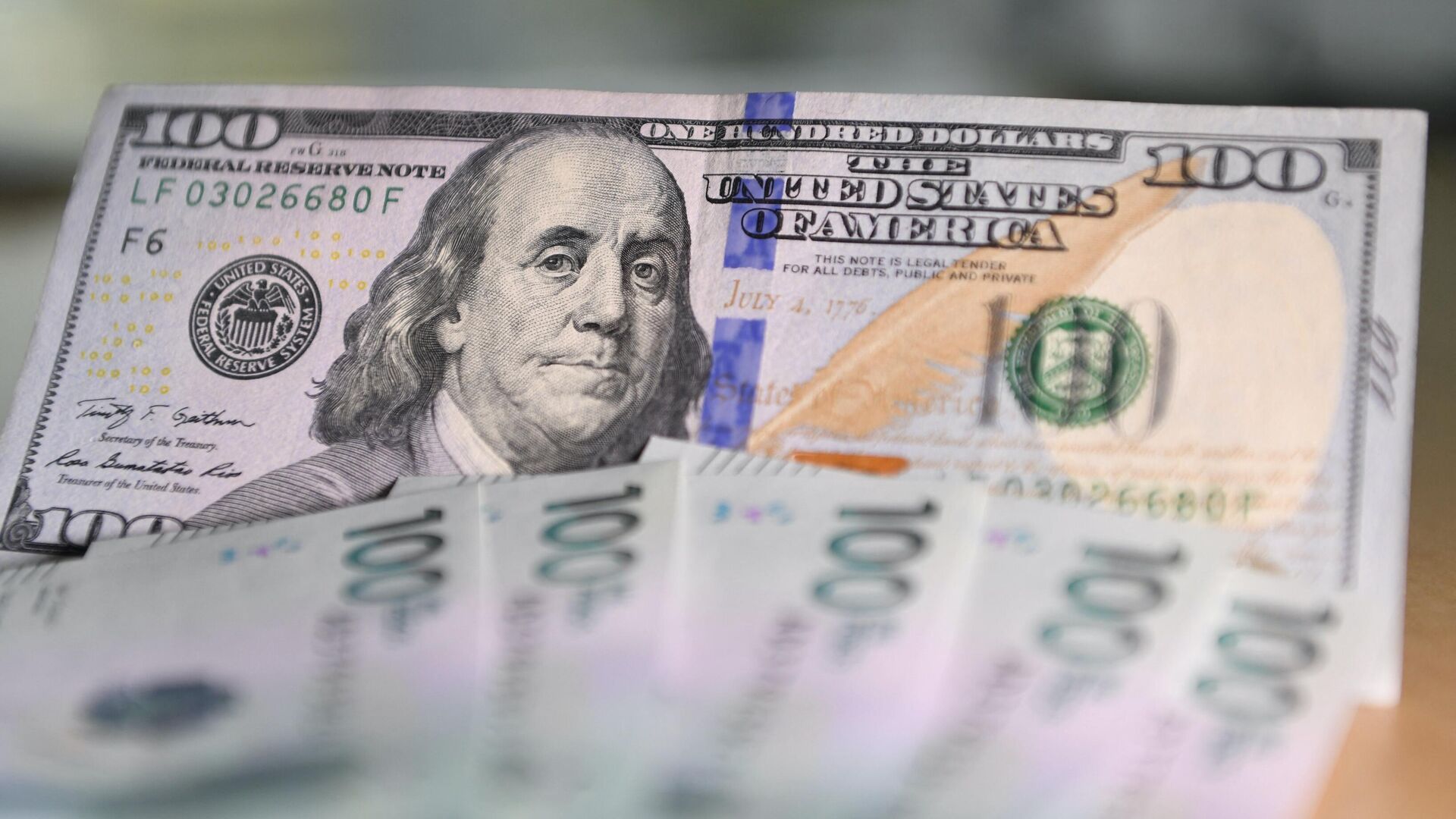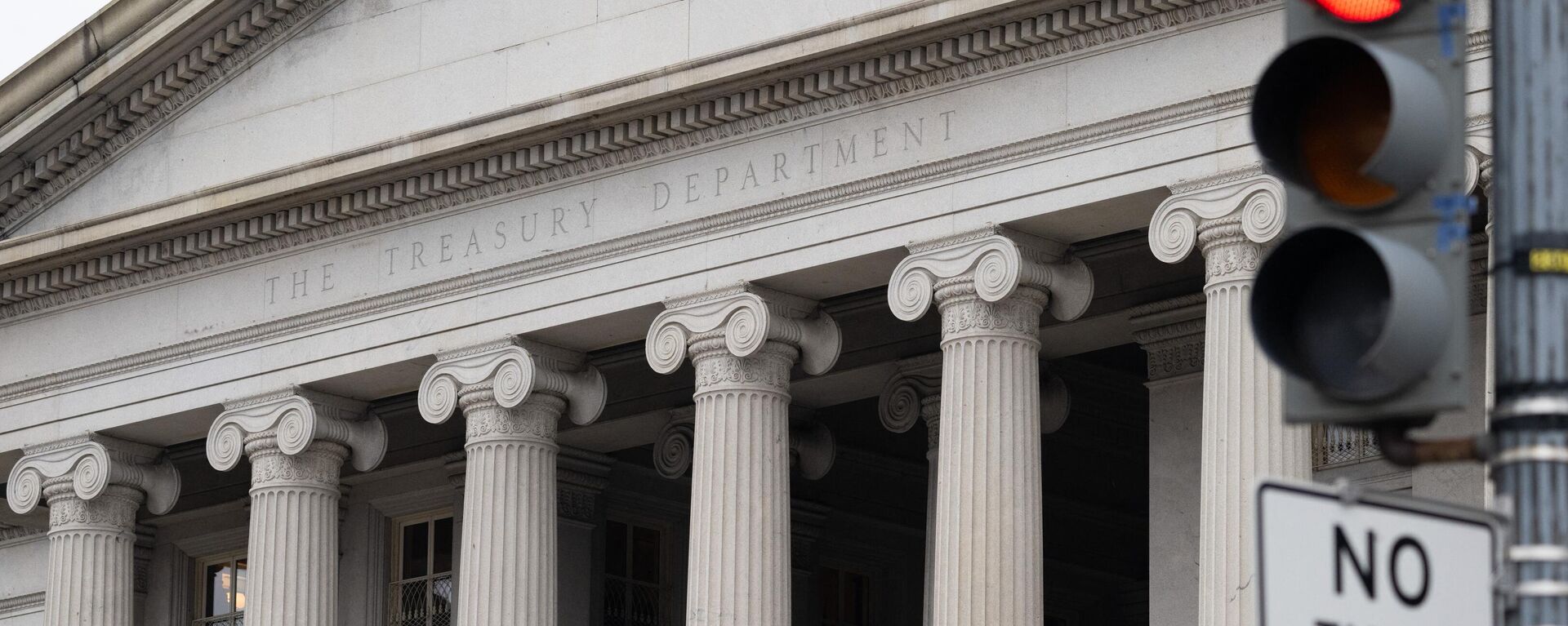https://sputnikglobe.com/20230515/us-consumer-debt-stands-at-17-trillion-credit-card-defaults-at-pandemic-level-1110385817.html
US Consumer Debt Stands at $17 Trillion, Credit Card Defaults at Pandemic Level
US Consumer Debt Stands at $17 Trillion, Credit Card Defaults at Pandemic Level
Sputnik International
The US consumer debt has exceeded $17 trillion the first time ever, with Americans defaulting on credit card and car loans at pandemic levels, the Federal Reserve Bank of New York said.
2023-05-15T18:21+0000
2023-05-15T18:21+0000
2023-05-15T18:21+0000
americas
us
economy
us economy
credit cards
https://cdn1.img.sputnikglobe.com/img/07e7/05/0b/1110262014_0:103:3272:1944_1920x0_80_0_0_4bd4d09e86c46a99f64a3cb3b9f11398.jpg
Total household debt in the first quarter of 2023 rose by $148 billion, or 0.9%, to $17.05 trillion, the report said, adding that balances were also $2.9 trillion higher than at the end of 2019, before the pandemic-triggered recession.Credit card balances were flat in the first quarter, standing at $986 billion, but auto loan balances increased by $10 billion in the first quarter, bucking the typical trend of balance declines in first quarters, the report said.Student loan balances slightly increased to $1.6 trillion. Other balances, which include retail cards and other consumer loans, increased by $5 billion, the report said.In total, non-housing debt grew by $24 billion for the first quarter, the report added.Mortgage balances rose modestly by $121 billion and stood at $12.04 trillion at the end of March, according the report.
https://sputnikglobe.com/20230514/us-deputy-finance-chief-says-debt-ceiling-talks-running-constructively-as-default-looms-1110355990.html
americas
Sputnik International
feedback@sputniknews.com
+74956456601
MIA „Rossiya Segodnya“
2023
Sputnik International
feedback@sputniknews.com
+74956456601
MIA „Rossiya Segodnya“
News
en_EN
Sputnik International
feedback@sputniknews.com
+74956456601
MIA „Rossiya Segodnya“
Sputnik International
feedback@sputniknews.com
+74956456601
MIA „Rossiya Segodnya“
us consumer debt, how big is us dept, credit card defaults, credit card defaults statistics in us, consumer debt, what is consumer debt
us consumer debt, how big is us dept, credit card defaults, credit card defaults statistics in us, consumer debt, what is consumer debt
US Consumer Debt Stands at $17 Trillion, Credit Card Defaults at Pandemic Level
WASHINGTON (Sputnik) - The US consumer debt has exceeded $17 trillion the first time ever, with Americans defaulting on credit card and car loans as much as they did during the coronavirus pandemic or more, the Federal Reserve Bank of New York said in its quarterly report on household debt and credit on Monday.
Total household debt in the first quarter of 2023 rose by $148 billion, or 0.9%, to $17.05 trillion, the report said, adding that balances were also $2.9 trillion higher than at the end of 2019, before the pandemic-triggered recession.
"The share of current debt becoming delinquent increased for most debt types," the report said. "The delinquency transition rate for credit cards and auto loans increased by 0.6 and 0.2 percentage points, respectively approaching or surpassing their pre-pandemic levels."
Credit card balances were flat in the first quarter, standing at $986 billion, but auto loan balances increased by $10 billion in the first quarter, bucking the typical trend of balance declines in first quarters, the report said.
Student loan balances slightly increased to $1.6 trillion. Other balances, which include retail cards and other consumer loans, increased by $5 billion, the report said.
In total, non-housing debt grew by $24 billion for the first quarter, the report added.
Mortgage balances rose modestly by $121 billion and stood at $12.04 trillion at the end of March, according the report.



